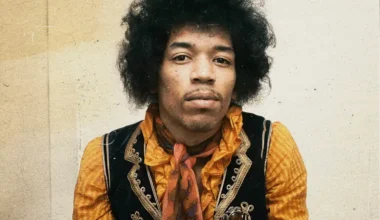Each song on Pink Floyd’s iconic albums derives from a tragedy of some kind. Every record they have released since the 1970s has typically been accompanied by a great deal of hurt, whether it is from grieving the loss of their friend Syd Barrett or coping with the demands of being one of the biggest rock stars in the world. Even David Gilmour had to acknowledge that the band was about to embark on one of their darkest eras following The Wall, despite his ability to be the band’s guiding light through it all.
Granted, everyone didn’t seem to be operating under the band mentality as much after such a significant undertaking. At the same time, Roger Waters assumed complete creative control over the majority of the sessions. Gilmour released a solo album to express his ideas. He also began working on albums with Kate Bush, his newfound discovery.
Nobody can write a song like “Comfortably Numb” and not feel proud of what they have accomplished, even though he was unable to contribute nearly as much as he would have liked to a massive rock opera. Despite experiencing numerous headaches before the recording, Gilmour produced some incredible single cuts. “Young Lust” stands out, featuring one of the greatest solos in the history of rock and roll.
Giving someone like Waters complete control didn’t mean that he would suddenly stop being a band member and go unnoticed. He now had an idea of what Pink Floyd would become, and The Wall: Part 2 was what The Final Cut was going to be. However, after hearing the record, The Wall: The Director’s Cut would be a more appropriate title.
Half of the songs on the album sound like outtakes from the rock opera. “When the Tigers Broke Free” was included in the film version but not on the album. These songs lack the full realization typical of Pink Floyd’s standards. Therefore, if you’re new to Pink Floyd and you pick up this record without first listening to The Wall, you’re missing half of the meaning behind the songs.
While David Gilmour was proud of a few songs on the record, he admitted that it was one of the least creative times he’s ever had in the band. He told Mojo, “It dates from one of the worst periods of my life.” Working with Roger at the time was a nightmare, so I had no desire to listen to The Final Cut or do anything related to it. However, “The Fletcher Memorial Home” is a fantastic tune.
It was this kind of strained relationship that ultimately caused the band to break up. Even though it was exciting for fans to watch the band expand upon their mythology, Waters eventually left Pink Floyd. Not long after, Gilmour continued the band on his own with A Momentary Lapse of Reason.
Even though many wouldn’t classify every album that came after that as poor, there are still elements lacking. These deficiencies stemmed from Gilmour and Waters’ internal conflict. The Final Cut was the first indication that the Pink Floyd we knew was about to break apart. It also stood as an odd addition to one of the best concept albums ever recorded.








